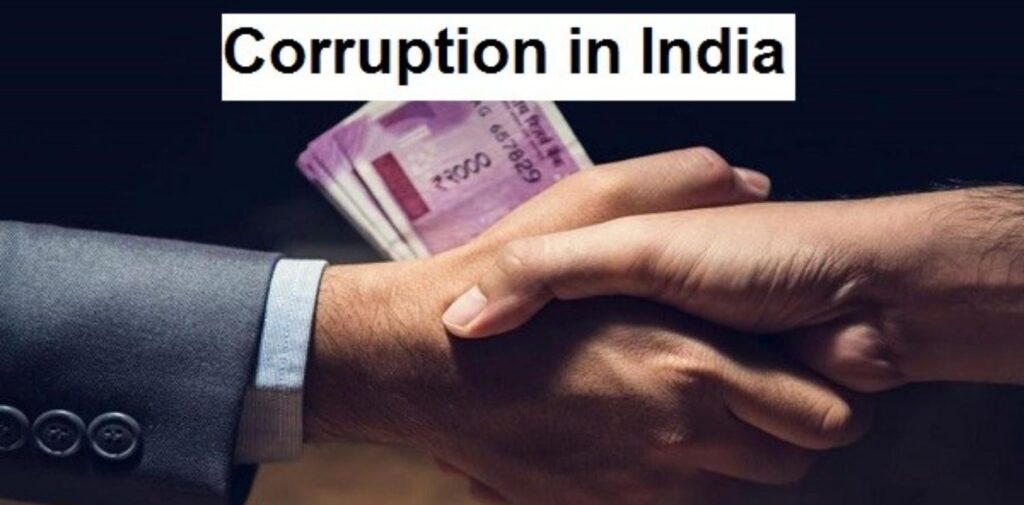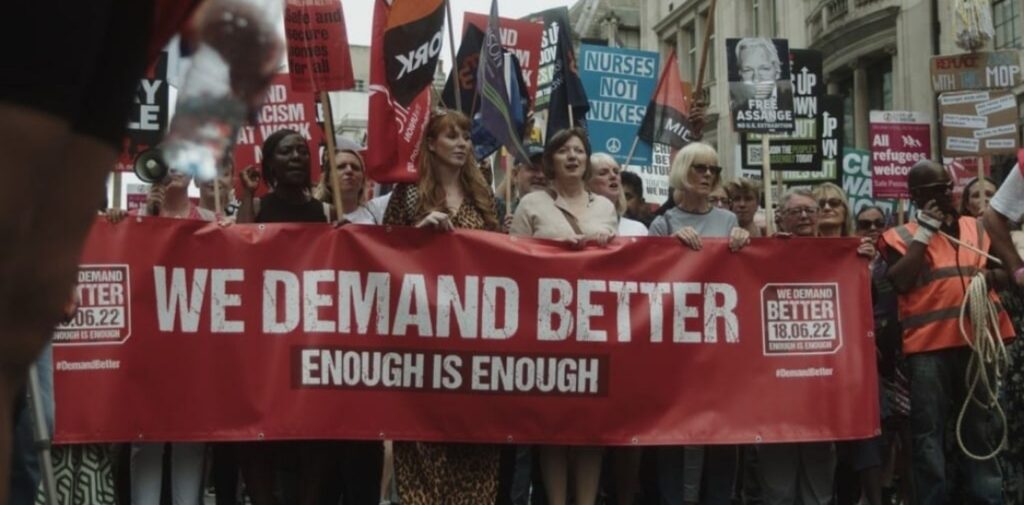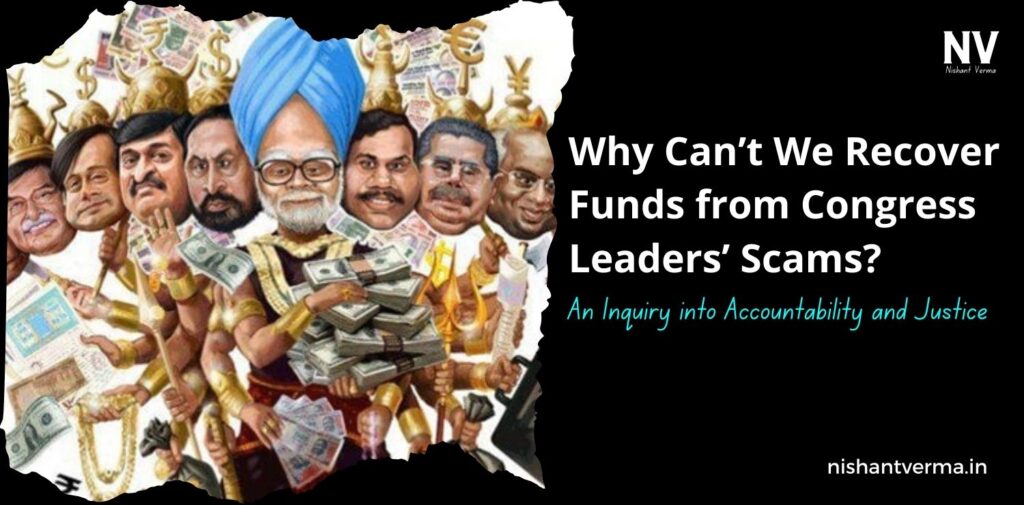In recent years, numerous scams involving vast sums of money have surfaced, implicating various political leaders, particularly those from the Congress party. Despite the evidence laid bare before the public, recovery of these misappropriated funds seems to be an elusive goal. Why is it that when scams of lakhs and crores are proven against prominent political figures, accountability remains a distant dream? Why Can’t We Recover Funds of Congress Leaders Scams? An Inquiry into Accountability and Justice? This question beckons a deeper exploration of the political, judicial, and systemic factors that contribute to this troubling reality.
The Cycle of Corruption: What Makes Accountability Difficult?
Corruption is not just a disease; it’s an entrenched culture that has permeated the Indian political landscape over decades. This culture thrives on a lack of accountability, primarily because of the political protection afforded to corrupt leaders. Scams like the Commonwealth Games scam, the 2G spectrum case, and others have revealed the extent of the issue. Yet, despite significant media coverage and public outrage, the recovery of lost funds remains largely unaddressed.
One significant reason for this is the power wielded by politicians. When leaders engage in corrupt practices, they often do so with the assurance that their political clout will shield them from repercussions. This creates a vicious cycle where leaders feel empowered to commit fraud, knowing they can evade justice.

Judicial Protection: Are the Chief Justices Complicit?
A key component of this discussion revolves around the judiciary’s role in upholding accountability. It raises the question: Are some Chief Justices and judges inadvertently protecting corrupt political leaders by allowing loopholes in the law to thrive? There have been numerous instances where legal proceedings against corrupt politicians have been delayed, dismissed, or poorly executed, leading to a perception of judicial complicity.
The delays in trials can often be attributed to a clogged legal system, where cases drag on for years without resolution. However, the question remains: Why are these cases not prioritized, especially when public interest is at stake? Are we witnessing a failure of the judicial system, or is it a deliberate act to shield powerful individuals from the consequences of their actions?
The Role of Loopholes in Indian Laws
Another critical aspect to consider is the legislative framework itself. Many laws are riddled with loopholes that can be exploited by those in power. For instance, the Prevention of Corruption Act has often been criticized for its ineffective enforcement. Corrupt leaders can leverage legal loopholes to avoid prosecution or minimize penalties, making it challenging to recover misappropriated funds.
Moreover, laws framed by previous governments often lack the teeth necessary for effective implementation. This raises an important question: Is the political system structured in such a way that it favors the corrupt? If so, what can be done to reform these laws to ensure greater accountability and justice?

The Public’s Role: Are We Demanding Enough?
As citizens, our role in this issue cannot be understated. Public opinion can exert significant pressure on political leaders and the judicial system. However, the question arises: Are we, as a society, demanding enough accountability from our leaders? The media plays a crucial role in bringing scams to light, but sustained public outrage is necessary to ensure that justice is served.
The growing apathy among citizens can often be attributed to a sense of helplessness or disillusionment with the political process. When people feel that their voices do not matter, it creates a dangerous precedent where corruption can flourish unchecked. Therefore, it is imperative for citizens to actively engage in the political discourse, hold leaders accountable, and demand transparency in governance.

Solutions: How Can We Break the Cycle?
Breaking the cycle of corruption requires a multifaceted approach.
- Judicial Reforms: Streamlining the legal process to expedite cases involving corruption is essential. Fast-tracking such cases would send a strong message that corruption will not be tolerated.
- Legislative Changes: Closing loopholes in existing laws and introducing stricter penalties for corruption would enhance accountability. A comprehensive review of laws governing political funding and electoral processes is also critical.
- Public Engagement: Encouraging civic participation through awareness campaigns and grassroots movements can empower citizens to demand accountability.
- Media’s Role: A vigilant media can play a pivotal role in exposing corruption. Investigative journalism should be encouraged, providing citizens with the information needed to hold leaders accountable.
Conclusion: Your Opinion Matters
As we reflect on these critical issues, it is clear that the failure to recover funds from scams involving political leaders is a complex problem rooted in systemic issues, political protection, judicial inefficiencies, and societal apathy.
What are your thoughts on this? Do you believe that the current political and judicial systems can be reformed to ensure greater accountability? How can citizens play a more active role in combating corruption?
Your opinions are essential in shaping a discourse around these pressing issues. Let’s engage in a constructive dialogue to explore solutions that can pave the way for a more accountable and transparent governance system.
In the face of corruption, the question remains: Are we willing to stand up and demand change?




